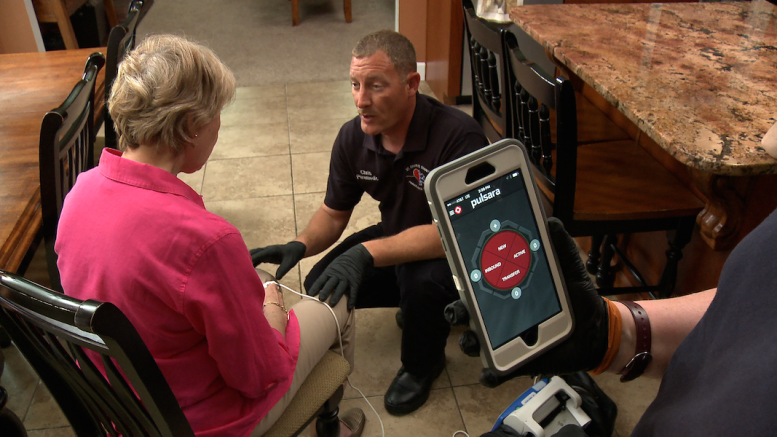Two Colorado Springs health systems have partnered with more than a dozen local emergency medical services agencies to implement the use of a mobile application to provide faster, better care to patients suffering from potentially devastating conditions.
When someone suffers a stroke in Colorado Springs, Colorado, a team of healthcare providers springs into action. First responders from local fire departments and American Medical Response (AMR) provide initial care and, also quickly notify the hospital. The hospital emergency department prepares to receive the patient and deliver the immediate care required when the patient arrives. And the stroke team, a specialized group of doctors and nurses, mobilizes to treat and reverse the cause of the stroke as soon as possible.
Those steps used to happen through a series of radio reports, phone calls, pages and other methods of communication, sometimes causing delays in care. The potential for members of the team to receive incomplete or incorrect information through this communication maze increases the likelihood of mistakes that can negatively impact patient outcomes.
With the help of a mobile application called Pulsara, which runs on the smartphones or other smart devices of first responders, emergency department personnel, and medical specialists, those problems are in the past.
“Our neurologists used to get a page at home and not know anything more than that a stroke patient was coming in,” said Stephanie Schlenger, Neurosciences Program Director at U.C. Memorial. “Now, not only do they get more information before they even see the patient, but they also receive it directly from the EMS provider or emergency department staff who treated the patient—meaning there is less likelihood of communications errors that can be very detrimental to patient care.”
Colorado Springs is one of the first communities in the nation where hospitals from multiple health systems have partnered with each other and with EMS to harness the power of mobile technology. This allows them to coordinate their care teams and ensure that stroke and heart attack patients throughout the region receive fast, high-quality care.
“We are thrilled at the opportunity to use technology to not only make the jobs of our medics, nurses, and doctors easier, but also to improve the care we provide to the residents and visitors of Colorado Springs,” said Donna Stringer, Stroke Program Coordinator for Penrose-St. Francis Health Services, a part of Centura Health.
“Anyone having a heart attack or stroke should have the best chance at recovery, no matter who responds to their call for help or where they receive care.”
Using the app, a paramedic in the field who recognizes a stroke can tap a button on her phone that notifies everyone on the assigned hospital team that an ambulance is on its way with a stroke patient. As the paramedic enters more information, including the patient’s medical history and vital signs, every member of the team is instantly updated.
“Before, our medics were never sure if the person on the other end of the radio heard what we said correctly or had time to write it down,” said E. Stein Bronsky, MD, the medical director for Colorado Springs Fire Department and AMR Colorado Springs. “Now they know that the information they enter into Pulsara can be viewed by everyone treating the patient.”
Hospitals and EMS systems are also using Pulsara to streamline and improve treatment of heart attack patients, who, like stroke victims, often need a rapid response from a team of specialists when they arrive at the hospital.
In addition to notifying the entire team of basic information, healthcare providers using Pulsara can transmit ECGs, photos, and even medical record numbers, allowing other members of the care team to look up the patient’s past medical history immediately. Because no information is stored on the user’s personal device, Pulsara is HIPAA compliant and secure.
“This collaboration between UCHealth, Centura Health and the Colorado Springs-area EMS providers is an example of how the healthcare community can come together to put the patients first,” said James Woodson, an emergency physician and creator of Pulsara. “With the added capabilities Pulsara provides, the community of Colorado Springs can rest easy knowing their family and friends are in great hands should an emergency occur.”

